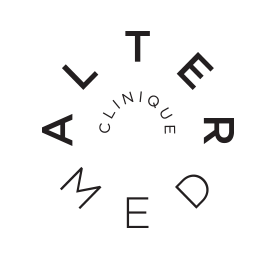Florence Charbonneau-Dufresne
Montreal physiotherapy
MANUAL THERAPY
IN PHYSIOTHERAPY
. . . . . . . . . . . . . .
What is manual therapy? Who practices it?
Manual therapy encompasses all the techniques of mobilization of soft tissues such as muscles and their envelope (fascias), joints and nerves.
It is practiced by osteopaths, chiropractors, massage therapists and physiotherapists.
It is used as an evaluation and treatment technique for neuro-musculo-skeletal problems, such as tendinopathy, ankle sprains or any other injury or pain.
. . . . . . . . . . . . . .
What happens during a manual therapy session
First, your therapist will assess the mobility of a tissue or body region to find out where the limitations of movement are.
Secondly, he or she will work on the areas that lack mobility, using his or her hands or body, in order to regain mobility and thus decrease pain in that area or an adjacent area.
For example, working on a tense muscle involved in a tendinopathy or working on a lack of mobility in the elbow in the case of wrist pain.
. . . . . . . . . . . . . .
Manual therapy pathway for physiotherapists
In Quebec, physiotherapy is learned at university during a Bachelor's program, followed by a mandatory Master's degree, all of which lasts 4 to 5 years.
Physiotherapy students learn numerous manual techniques for the evaluation and treatment of the neuro-musculo-skeletal system in order to establish a physiotherapy diagnosis and plan appropriate treatments.
For example, a patient arrives to see a physiotherapist following a fall on the ankle.
Following his or her evaluation, the physiotherapist will be able to diagnose the ankle sprain, give advice to the patient and begin treatment, notably restoring mobility to the ankle and foot bones and calf muscle flexibility following the sprain with manual therapy techniques.
Following graduation, physiotherapists can take a variety of manual therapy courses to further their education, including the Canadian Physiotherapy Association's course curriculum.
Since the body is made up of many joints, each with different shapes and properties and therefore a different way of moving, there is a course curriculum specifically dedicated to joint mobility and its impact on the rest of the body.
This training is divided into 5 levels to specialize in the evaluation and treatment of this complex system.
The highest level leads to the Advanced Diploma in Manual Therapy which entitles the student to the title of FCAMP (Fellow of the Canadian Academy of Manipulative Physiotherapy).
This training can be taken through weekend or part-time courses at 3 Canadian universities.
. . . . . . . . . . . . . .
Why consult a FCAMP physiotherapist?
A blockage or lack of mobility in one joint can have repercussions on neighboring joints, creating pain. For example, a stiff elbow can cause pain in the wrist.
Also, the same blockage can affect the proper functioning of the muscular system and put more strain on certain muscle groups.
For example, if the elbow does not move well, this can lead to overuse of the extensor muscles of the forearm and thus lead to tennis elbow more easily following an increase in activity.
This same blockage can prevent the neural system from moving properly and therefore create pain, for example sciatic nerve pain following a pelvic blockage.
Physiotherapists with the Advanced Diploma in Manual Therapy and the FCAMP designation have a more holistic view of your neuro-musculo-skeletal problem and are better qualified to help you treat your symptoms, but more importantly, to address the underlying cause of the problem that may be further away from the symptoms in your body.
In addition, they are familiar with more advanced techniques to "unblock" or restore mobility to joints, which speeds up the treatment process and therefore healing.
You can find a list of accredited FCAMP physiotherapists on the following website: http://manippt.org/directory-dashboard/
. . . . . . . . . . . . . .
Florence Charbonneau-Dufresne, Physiotherapist
Florence.charbonneau-dufresne@cliniquealtermed.com


